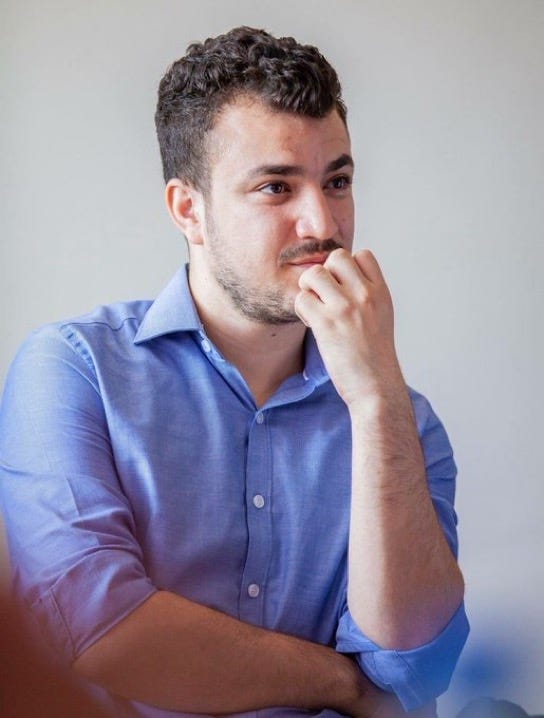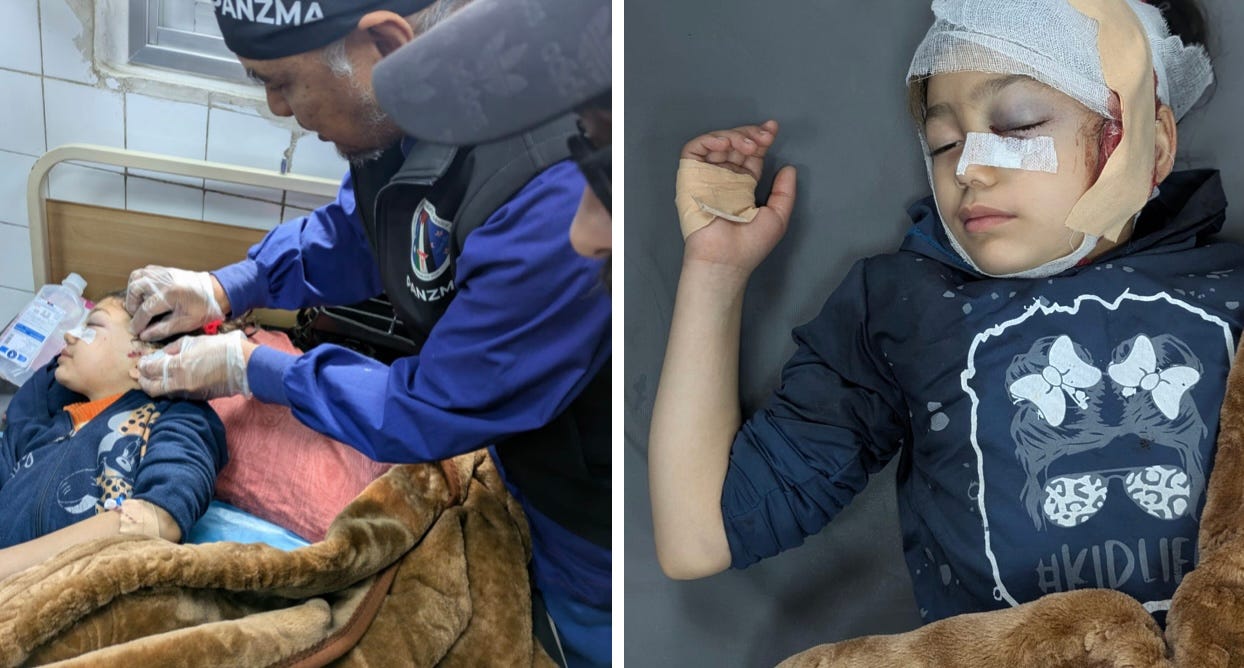Ramadan Means Empathy—So Why Is Gaza Starving Alone?
While the Muslim world feasts, Palestinians in Gaza fast without choice—Israel has cut off their food, water and electricity. In a month of empathy, silence is complicity.
And just like that, the lights will go out.
Seven days of starving Gaza. Seven days of watching aid convoys rot at the border while Israeli officials grin into cameras, boasting of the “tightened siege.” Seven days of mothers boiling leaves to break their fast, of infants clinging to the last drops of formula, of hospital shelves emptied of anesthetics, of insulin, of hope. Then, the final blow: the power is cut.
Israel’s Energy Minister Eli Cohen announced it plainly and proudly: no more electricity for Gaza. The last remaining line, the Kissufim line. Two desalination plants, funded by UNICEF, supplying water to 700,000 people in Deir el-Balah and Khan Younis—shut down. The so-called justification? “To ensure the return of hostages.” But the reality is that this is about the destruction of Gaza, the eradication of life, one basic necessity at a time, one human being at a time.
No power means no clean water. No functioning hospitals. No ventilators. No life.
This is not a new Israeli policy. Before October 7, Israel supplied Gaza with just half of its electricity—ten power lines, each one a leash. After October 7, all ten were severed. By late 2024, under immense international pressure, one, just one, was begrudgingly reconnected. And now, with a flick of a switch, that lifeline is gone, again.
Collective punishment is the term the world uses when it happens elsewhere. In Gaza, it is policy. A methodical effort to create “conditions of life calculated to bring about [a people’s] physical destruction,” as the legal language states.
The International Court of Justice (ICJ) explicitly warned against this. Israel explicitly did it anyway. It is a crime, the same crime Netanyahu was indicted for years ago, the same crime Ursula von der Leyen condemned when Russia did it, only now Israel’s is done with more catastrophic results, and full impunity.
And still, there is no consequence. No sanction. No arms embargo. The enablers of this horror sit in parliaments and press rooms, penning condemnations of war crimes elsewhere while financing them here.
Meanwhile, the darkness and despair spreads.
But the blackout extends beyond Gaza. It reaches New York, where Mahmoud Khalil, a Palestinian graduate student at Columbia University and U.S. green card holder, is abducted by agents from the Department of Homeland Security. He is detained without a warrant. No due process. No crime, except, of course, for speaking out against the genocide of his fellow Palestinians.
When his lawyer demands justification, the agents fumble. First, they revoke his visa. Then, when they realize he is a permanent resident with a green card, they revoke that too. They say it with the ease of someone misplacing a file. His wife, eight months pregnant, waits at home while he is detained and threatened with deportation.
Mahmoud's attorney says they do not know where he is. They were told he was sent to an ICE facility in Elizabeth, NJ. But when his wife tried to visit him, she was told he's not there.
This is how it happens. First, they come first for those who speak against genocide, then for those who speak against the regime, and eventually, for anyone who speaks at all. How far can they go before you notice? Before you care? Before you realize you can be next.
In Gaza, a sniper counts his kills like points in a game. “After 200, I stopped counting,” he admits. Another soldier, from a nearby village, chimes in: “I stopped at 400.” And when asked about children, there is a pause. Then, a sigh. Then, the inevitable: “Yes, there were children.”
This is not fiction. This is not a war movie script. This is a confession, published by former Haaretz journalist Nati Yefet. This is an open admission of genocide.
17,400 Palestinian children—killed.
17,000 Palestinian children—orphaned.
Gaza is now home to the highest number of child amputees per capita in the world.
And yet, for all the suffering, all the strategic cruelty, all the night-vision precision with which Israel decides who lives and who dies, the world remains complicit. The hands that sign arms deals are the same ones that write empty resolutions about human rights. The mouths that condemn genocide in textbooks are the same ones that stutter into silence when it unfolds in real-time.
Meanwhile, in a tent in northern Gaza, a six-year-old girl sleeps. A drone hovers overhead, unprovoked. At 11 p.m., an Israeli drone shoots her in the face. The bullet fractures her skull, causes bleeding in her brain, shatters bones behind her left eye. There was no military activity in the area. No warning. No reason. Just the detached, mechanical execution of a child.
Her family does not know why she was attacked. The doctor does not know why she was attacked. But we do.
Al Jazeera’s
reports from Gaza City, where she also spoke with Dr Christopher Holden, who says working conditions for medical staff in Gaza are worsening.This is not just about Gaza. It is about a rogue regime that demands absolute impunity. About an empire that polices dissent not just in the ruins of Rafah, but in the classrooms of New York. About a world that has perfected the art of selective outrage.
And for those still asking, still feigning confusion—“why should Israel provide electricity to Gaza?”
Israel does not provide electricity to Gaza. It withholds it. It weaponizes it. It bombed Gaza’s only power plant in 2008. And again in 2014. And when efforts were made to rebuild it, Israel ensured the necessary materials never entered.
The question is not why Gaza does not produce its own power. The question is why Israel has spent years making sure that it never can.
It is the holy month of Ramadan. In Cairo, in Riyadh, in Dubai, tables groan under the weight of feasts. Gold-rimmed plates overflow with lamb and saffron rice, dates so plump they glisten under chandelier light. Families gather, hands clasped in prayer, voices lowered in gratitude.

Ramadan is meant to be a month of empathy, a time to remember the hunger of the less fortunate. It is meant to teach patience, discipline, generosity. And yet, as Gaza starves, as infants shrink into skeletal forms, as the few remaining bakeries are bombed into dust, the world of plenty looks away.
A million Palestinians fast without suhoor. They break their fast with nothing. They do not feast; they scavenge. They do not pray in safety; they pray in mourning. The same people who flood their streets with lanterns and crescents, that speak of Ramadan’s holiness, that pride themselves on charity and compassion, now sit idly by as Israel ensures that Gaza will not live to see another Eid.
What is the lesson of this Ramadan? That we have perfected our performance of piety while forgetting its purpose? That we can recite the prayers, fill the mosques, donate the spare change, and still remain silent in the face of genocide?
The answer lies in the ruins of Gaza. In the bodies buried under them. In the child who will not wake from her last sleep.









Thank you for writing this. Ramathaan has only heightened my empathy for Palestinians in Gaza and beyond. It’s impossible not to think of them at suhoor and futoor. I pray every person manages to find a way through. May the world continue to shift to end this brutal regime.
So horrific, so shameful. 💔😞 What a dark stain on all complicit in /silent about this genocide. I feel sick inside.